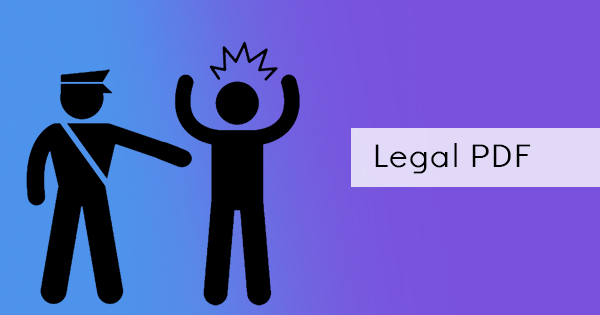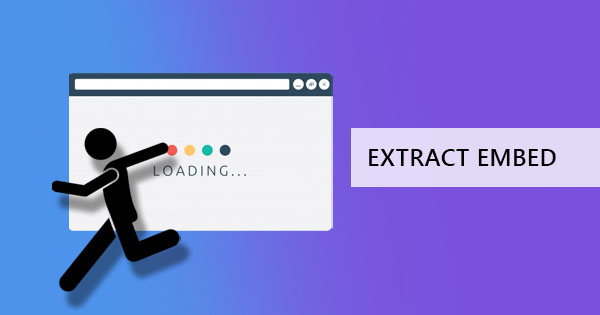
Portable Document Format (a.k.a. PDF) is widely accepted these days. It has been used as a standard and the norm format for documentation because of its secure features, portability, and because it is lossless. In the legal field, it is always a good idea to use this format whether it is for compiling purposes or court presentations.
In any court, certain requirements should be met before it is considered an admissible document. The basic rule is, the document should not be altered or easily be edited. PDF is certainly one of those formats that fit the said prerequisite, along with other unalterable files like TIFF or JPEG files. But unlike TIFF and JPEG files, PDF can actually store and leave an electronic trail if it is edited. This makes it the perfect format for court.

Why PDF is the best bet for court
1. Highly Secure – PDFs are known for their “uneditable” feature, meaning a read-only file can only be seen and viewed, not easily altered. Unlike MS Word or Excel files, whose data can easily be edited upon opening, PDFs can remain a flat document as if it was an image file. You can also add additional security by adding encryption, where unauthorized eyes are kept out.
2. Compatibility – PDFs can be opened, viewed, and shared easily anytime and anywhere on any device. Since this is a standard that is widely accepted to various platforms, PDF can then be a representation of a document without the excuse of incompatible with operating systems (or versions). The document’s content is without a doubt, shown and seen the same way it was created and portrayed by the author no matter what device is used.
3. Metadata– A secure PDF can easily be traced. If there are certification IDs and encryptions installed on all users, it would be easy to trace who has accessed, changed, edited, or added any information on the PDF’s content. The document can also contain other information such as the author of the document, descriptions, date created, modified, etc.
4. Recording and Documentation – PDFs are great for documentation as it displays accurately the details of a document with its lossless feature. Whether it be the colors, the structure of the document, formatting, layout, graphics fonts, or the words, all of its content is portrayed as it was intended to. This is important in court because the court needs accuracy in detail. For instance, insurance industries need to include colorful pictures and should also show high-quality images. Another example is the construction industry, putting together plans, maps, designs, and architectural drawings that need to be included for presentation.
5. It can be signed – PDF documents can easily be signed and have been deemed acceptable and binding. PDF documents don’t need to be printed, signed, and scanned all over like the old days as they can be directly signed with a digital signature. Businesses and organizations can send and receive documents, contracts, and agreements electronically.
6. Accessible – With standards being followed, PDF documents like PDF/A can be accessible to anyone including the visually impaired. These digital documents can easily be processed by screen readers and other assisting technologies as it supports structured content.

Producing the court admissible PDF
With the increasing number of technologies developing these days, some courts all over the world have implemented that documents be read digitally. It may be for evidence purposes or for court filings, whatever they may be, there is one type of format that is acceptable and that is the PDF.
PDF is indeed an international standard document and law firms will agree that it is worthwhile to use such format for the purpose of court or investigation. This is true as long as it is in this specific PDF format – the PDF/A (or PDF/Archival) format. Aside from this, PDF needs to have certain qualities so your lawyer, the judge, law clerks, and the jury can easily understand your document. As they say, make your document “court-friendly.”
1. Make your document text-based unless images are necessary. Text-based makes it simple, easy to understand, clean, efficient and makes it faster to follow – provided that your grammar and writing are correct. Making it a simple document with formatting and fonts that are easy to read is also a plus. And, if the PDF content has recognizable characters and machine-readable content is easier to search and read by the computer. You can make any kind of PDF into a machine-readable PDF by using an OCR tool.
2. Make it compact and manageable. If your file is large, it will take longer to load and download by the clerk. In some areas, courts only accept a maximum of 35MB. This is to keep work efficient and encourage optimized documents for submission. You can actually keep your documents small if you save a document directly from your computer rather than scanning a file.
3. Keep it structured. A document that is straightforward and is easy to navigate will be easier to understand. Keep the sentences concise and direct to the point as well. If it is impossible to keep short sentences on your file, it is recommended to put bookmarks and links to exhibits so that the court can get to the sections fast if needed. Read more: How to create bookmarks
4. Check your local court’s requirements. Not all courts are the same so if you’re filing or providing some information, check-in with them if there is anything that you need to include or remove. Sometimes they also require to pass it within a deadline or a timeframe so keep yourself informed by always asking the right people!



